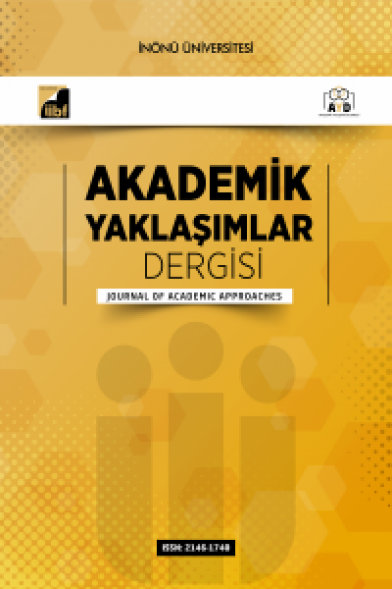HOW CAN SCIENCE DIPLOMACY ASSIST TO SUPPORT THE EU’SPOLICY GOALS?
HOW CAN SCIENCE DIPLOMACY ASSIST TO SUPPORT THE EU’SPOLICY GOALS?
___
- Commission of the European Communities, (2008). Strategic European Framework for International Science and Technology Cooperation. 588 Final.
- De Las Heras, B. P. (2018). From Kyoto to Paris: The European Union’s Contribution to A New World Climate Order. Revista Catalana De Dret Ambiental, 9 (1), 1-26.
- European Commission, (2012). Enhancing and Focusing EU International Cooperation in Research and Innovation: A Strategic Approach, 497 Final.
- European Commission, (2015). The INDC of the European Union and its 28 Member States.
- European Commission, (2016). Open Innovation, Open Science, Open to the World: A Vision for Europe.
- European Commission, (2019). The European Green Deal, April 19, 2022. https://ec.europa.eu/commission/presscorner/detail/en/ip_19_6691
- European Commission. Cooperation with non-EU Countries & Regions, April 19, 2022. https://ec.europa.eu/clima/eu-action/international-action-climate-change/cooperation-non-eu-countries-regions_en
- European Union. Aims and Values. April 19, 2022. https://european-union.europa.eu/principles-countries-history/principles-and-values/aims-and-values_en
- Flink, T. & Schreiterer, U. (2010). Science Diplomacy at the Intersection of S&T policies and Foreign Affairs: Toward a Typology of National Approaches. Science and Public Policy, 37 (9), 665-677.
- Gluckman, P. T., Goldson, S. L. & Beddle, A. S. (2012). How a Small Country Can Use Science Diplomacy: A View from New Zealand. Science & Diplomacy, 1 (2), 1-7.
- Gluckman, P. T., Turekian, V. C., Grimes, R. W. & Kishi, T. (2017). Science Diplomacy: A Pragmatic Perspective from the Inside. Science & Diplomacy, 6 (4), 1-13.
- Jensen, L. (2020). EU Climate Target Plan: Raising the Level of Ambition for 2030. European Parliamentary Research Service.
- Langenhove, L. V. (2016). Global Science Diplomacy for Multilateralism. Science & Diplomacy, 5 (4), 1-8.
- Langenhove, L. V. (2017). Tools for an EU Science Diplomacy. European Commission, 1-34.
- Moedas, C. (2016). Science Diplomacy in the European Union. Science & Diplomacy, 5 (1), 1-9.
- Nye, Jr. J. S. (2004). Soft Power: The Means to Success in World Politics. Public Affairs.
- Özkaragöz Doğan, E. (2015). Science Diplomacy in the Global Age: Examples from Turkey and the World, Middle East Technical University, Ankara.
- Özkaragöz Doğan, E., Uygun, Z. & Akçomak, I. S. (2020). Can Science Diplomacy Address the Global Climate Change Challenge? Environmental Policy and Governance, 31 (1), 31-45.
- Ruffini, P. B. (2017). Science and Diplomacy: A New Dimension of International Relations. Springer International Publishing.
- The Royal Society, AAAS (2010). New Frontiers in Science Diplomacy: Navigating the Changing Balance of Power. Science Policy Centre, 1-44.
- Turekian, V. C., Macindoe, S., Copeland, D., Davis, L.S., Patman, R. G. & Pozza, M. (2015). The Emergence of Science Diplomacy. In David, L. S., and Patman R. G. (Eds). Science Diplomacy: New Day or False Dawn? 3-24.
- United Nations, (2015). Paris Agreement.
- Yayın Aralığı: 2
- Başlangıç: 2010
- Yayıncı: Gökhan Tuncel
ORTA-BÜYÜK ÖLÇEKLİ MEVDUAT BANKALARINDA KREDİ RİSKİNİN AKTİF KARLILIĞINA ETKİSİ-TÜRKİYE ÖRNEĞİ
Aylin ÇELİK KARA, Şenol BABUŞCU, Adalet HAZAR
ENDÜSTRİ 4.0 VE EVRİMCİ İKTİSAT
AVRUPA BİRLİĞİ’NDE EKOLOJİK YENİLİK ALANINDA YAKINSAMANIN SINANMASI
SAĞLIK ÇALIŞANLARINDA ÇALIŞMA YAŞAMI KALİTESİNİN ÖRGÜTSEL MANEVİYATA ETKİSİ
ÇALIŞAN YOKSULLUĞU: AB VE TÜRKİYE’DE DURUM ANALİZİ
SEKÜLER TOPLUMUN KRİZİ: POST-SEKÜLERİZMİ TARTIŞMAK
Bilim Diplomasisi AB'nin Politika Hedeflerini Desteklemeye Nasıl Yardımcı Olabilir?
DİN VE SİYASETİN YORUMLANMASINDA SÖYLEMİN AYRIŞTIRILAMAZLIĞI
